#War poetry
Text
What should a poet do in such a world? Write poems. Zbigniew Herbert, as a Warsaw adolescent, saw the only choice clearly enough when he said: "One might still offer / even to the betrayed world / a rose."To write poetry, even in the most hopeless of situations, is an act of faith-not only in poetry itself, but in the world. And who knows? Maybe someone will even read you someday, awaken to his or her own life, and live it with little more laughter and sanity, more dignity and passion.
From "War as Parable and War as Fact: Herbert and Firche"
#poetry#words#classic literature#literature#english literature#quote#war poetry#war poem#free palestine#free gaza#gaza#gaza genocide#quotes#palestinian literature#palestine
457 notes
·
View notes
Text
I saw a man this morning
Who did not wish to die;
I ask, and cannot answer,
If otherwise wish I.
Fair broke the day this morning
Against the Dardanelles;
The breeze blew soft, the morn's cheeks
Were cold as cold sea-shells.
But other shells are waiting
Across the Aegean sea,
Shrapnel and high explosive,
Shells and hells for me.
O hell of ships and cities,
Hell of men like me,
Fatal second Helen,
Why must I follow thee?
Achilles came to Troyland
And I to Chersonese:
He turned from wrath to battle,
And I from three days' peace.
Was it so hard, Achilles,
So very hard to die?
Thou knewest and I know not—
So much the happier I.
I will go back this morning
From Imbros over the sea;
Stand in the trench, Achilles,
Flame-capped, and shout for me.
— I Saw A Man This Morning, by Patrick Shaw-Stewart
(context and some incoherent opinions below)
CONTEXT: Shaw-Stewart was a British soldier in WWI. His only poem, ‘I Saw A Man This Morning,’ was written in a period of rest before returning to fighting and was published posthumously. He was killed in battle in 1917.
this is one of my all-time favourite poems. like, it lives rent free in my head and sometimes i just recite it to myself and go insane
the repetition of ‘hell’ in the fourth stanza and then its echo in the name helen?? like omg?
and those last two lines – ‘stand in the trench, Achilles, / Flame-capped, and shout for me.’ SCREAM
i struggle to form coherent thoughts about this poem but yeah it’s pretty awesome
1K notes
·
View notes
Text
youtube
Video description:
Preface reading: "Rafeef Ziadah, 12/11/11, London". The video begins showing a young woman on a stage, her hair cut in a sharp, short bob, wearing a gauzy black dress with red accents to match the stage wall behind her. She speaks into a mic in a blend of Canadian and Palestinian accents:
Transcript: "I'll start with this poem I wrote. This poem—when the bombs were dropping on Gaza I was the media spokesperson for the coalition, doing a lot of the organizing, and we'd stayed up to about six o'clock in the morning perfecting every soundbite and by the end of—you know most Palestinians get tired and start pronouncing our "P"s as "B"s so we could become "Balestinians" by the end of the day. So I was practicing my "P"s all night, and the next morning one of the journalists asked me, "Don't you think it would all be fine if you just stopped teaching your children to hate?"
I did not insult the person, I was very polite, but I wrote this poem as a response to these types of questions we Palestinians always get."
Today, my body was a TV’d massacre.
Today, my body was a TV’d massacre that had to fit into sound-bites and word limits.
Today, my body was a TV’d massacre that had to fit into sound-bites and word limits filled enough with statistics to counter measured response;
and I perfected my English and I learned my UN resolutions—But still, he asked me,
"Ms. Ziadah, don’t you think that everything would be resolved if you would just stop teaching so much hatred to your children?
Pause.
I look inside of me for strength to be patient but patience is not at the tip of my tongue as the bombs drop over Gaza.
Patience has just escaped me.
Pause. Smile.
"We teach life, sir."
Rafeef, remember to smile.
Pause.
"We teach life, sir.
We Palestinians teach life after they have occupied the last sky.
We teach life after they have built their settlements and apartheid walls, after the last skies.
We teach life, sir."
But today, my body was a TV’d massacre made to fit into sound-bites and word limits.
And— "Just give us a story, a human story.
You see, this is not political.
We just want to tell people about you and your people so give us a human story.
Don’t mention that word: “apartheid” and “occupation”—
This is not political. You have to help me
as a journalist
to help you tell your story which is not a political story—"
Today, my body was a TV’d massacre.
"How about you give us a story of a woman in Gaza who needs medication?"
"How about you?
Do you have enough bone-broken limbs to cover the sun?
Hand me over your dead and give me the list of their names in one thousand two hundred word limits."
Today, my body was a TV’d massacre that had to fit into sound-bites and word limits and move those that are desensitized to terrorist blood.
But they felt sorry.
They felt sorry for the cattle over Gaza.
So, I give them UN resolutions and statistics and we condemn and we deplore and we reject and—
These are not two equal sides: occupier and occupied.
And a hundred dead, two hundred dead, and a thousand dead.
And between that, war crime and massacre, I vent out words and smile (not exotic), smile (not terrorist)
And I recount, I recount a hundred dead, two hundred dead, a thousand dead.
Is anyone out there?
Will anyone listen?
I wish I could wail over their bodies.
I wish I could just run barefoot in every refugee camp and hold every child, cover their ears so they wouldn’t have to hear the sound of bombing for the rest of their life the way I do.
Today, my body was a TV’d massacre
And let me just tell you, there’s nothing your UN resolutions have ever done about this.
And no sound-bite—no sound-bite I come up with, no matter how good my English gets—no sound-bite-no sound-bite-no sound-bite-no sound-bite, will bring them back to life, no sound-bite will fix this.
We teach life, sir.
We teach life, sir.
We Palestinians wake up every morning to teach the rest of the world LIFE.
Sir.
End transcription.
I think this twitter thread gives some necessary political context for the poem, so you can really understand the cruelty and barbarity of that question, and why Western media insistently shies away from "political" answers:
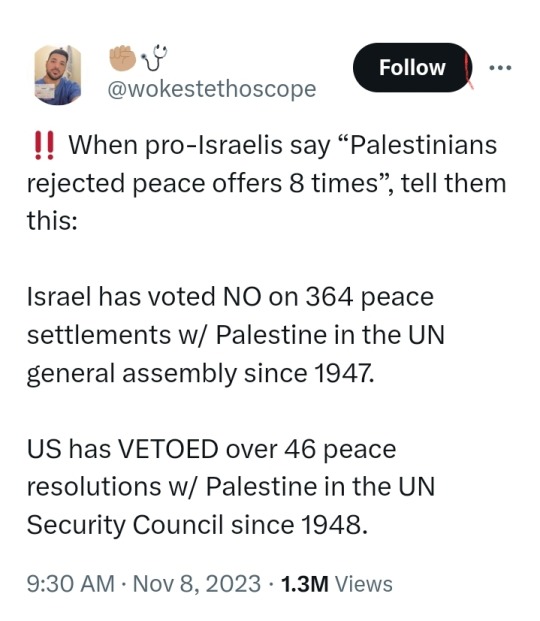
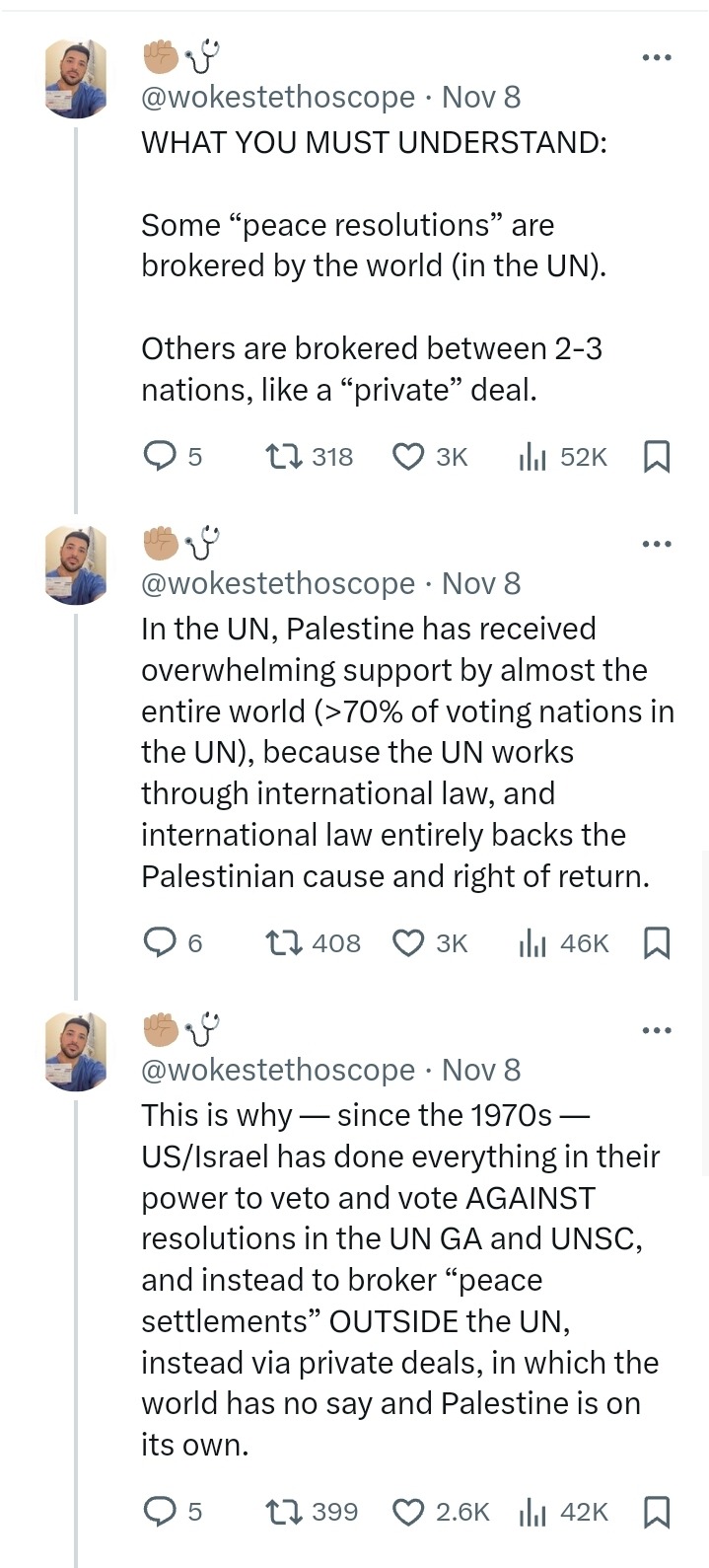

Cursory Google check corroborates all the info except for the number of peace settlements Israel's rejected. I can't find the exact number off the first page of Google and my head is throbbing too much to look deeper. I'm going to leave that for y'all to fact check.
(I went and looked Rafeef Ziadah up to check whether she's still alive (because that's what we do with Palestinians now) and she's safe in London, teaching Politics and Public Policy at King's College. You can find the rest of her poetry here.)
#spoken word#poetry#resistance poetry#war poetry#palestinian poetry#palestinian art#rafeef ziadah#gaza under attack#gaza genocide#free palestine#I/p#war crimes#anti Zionism#racism#human rights#western imperialism#western hypocrisy#colonization#human rights abuses#media manipulation#us politics#islamphobia#world politics#united nations#israel palestine conflict#knee of huss#Youtube
247 notes
·
View notes
Text
Captain ships as relationship troupes
Patcap

Library Chaps
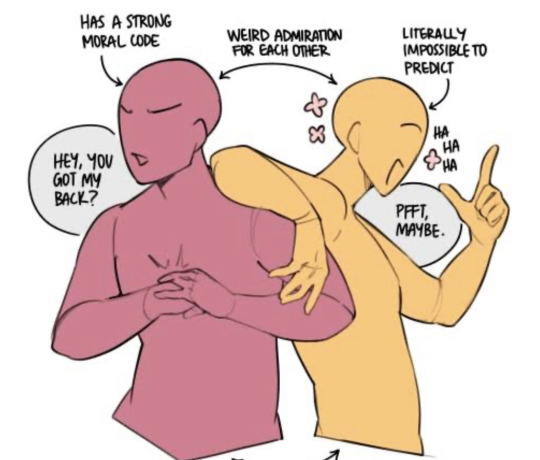
War Poetry

Capvers

Decapitation
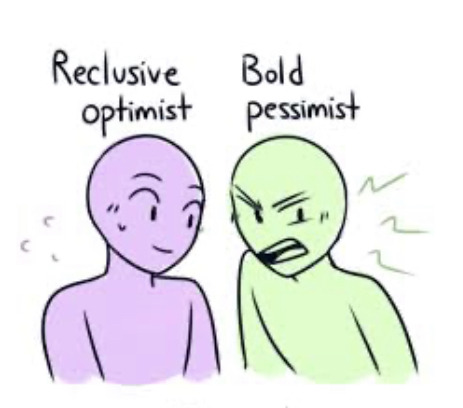
#bbc ghosts#the captain#julian fawcett#thomas thorne#pat butcher#humphrey bone#lieutenant havers#patcap#library chaps#capvers#war poetry
221 notes
·
View notes
Text
What else to do
when the unspeakable comes. What to burn
when it doesn’t. Somewhere in a world that didn’t quite
end, a woman like me is foraging for that which failed to kill her.
Franny Choi, The World Keeps Ending, and the World Goes On , Upon Learning That Some Korean War Refugees Used Partially Detonated Napalm Canisters as Cooking Fuel
#Franny Choi#The World Keeps Ending and the World Goes On#Upon Learning That Some Korean War Refugees Used Partially Detonated Napalm Canisters as Cooking Fuel#quote#quotes#poetry#poetry excerpt#poem excerpt#poem quote#poem quotes#poetry quote#poetry quotes#war#war poetry#poems about war
107 notes
·
View notes
Text
"If you could hear, at every jolt, the blood / Come gargling from the froth-corrupted lungs, / Obscene as cancer, bitter as the cud / Of vile, incurable sores on innocent tongues,— / My friend, you would not tell with such high zest / To children ardent for some desperate glory, / The old Lie: Dulce et decorum est / Pro patria mori."
Read it here | Reblog for a larger sample size!
#great poem but why on earth did he put an em dash directly after a comma#mr. owen i just want to talk#closed polls#polls#poetry#poems#poetry polls#poets and writing#tumblr poetry#have you read this#dulce et decorum est#wilfred owen#war poetry#wwi
30 notes
·
View notes
Text
Suicide In The Trenches
- Siegfried Sassoon (1886-1967)
I knew a simple soldier boy
Who grinned at life in empty joy,
Slept soundly through the lonesome dark,
And whistled early with the lark.
-
In winter trenches, cowed and glum
With crumps and lice and lack of rum,
He put a bullet through his brain.
No one spoke of him again.
-
You smug-faced crowds with kindling eye
Who cheer when soldier lads march by,
Sneak home and pray you’ll never know
The hell where youth and laughter go.
61 notes
·
View notes
Text
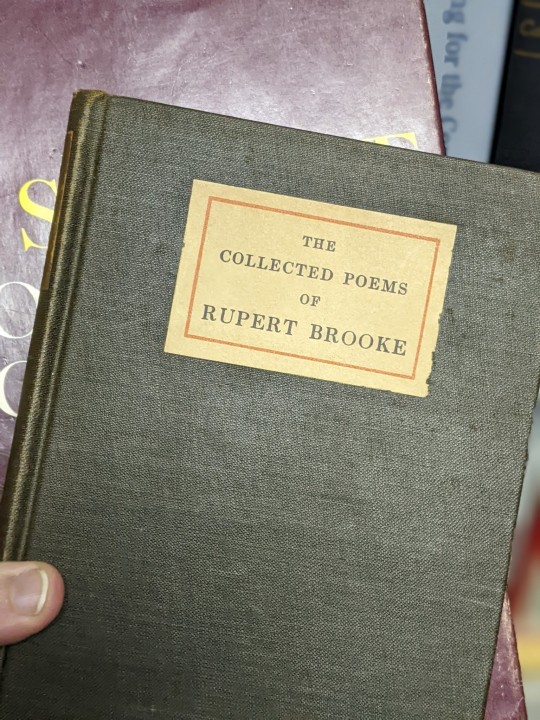
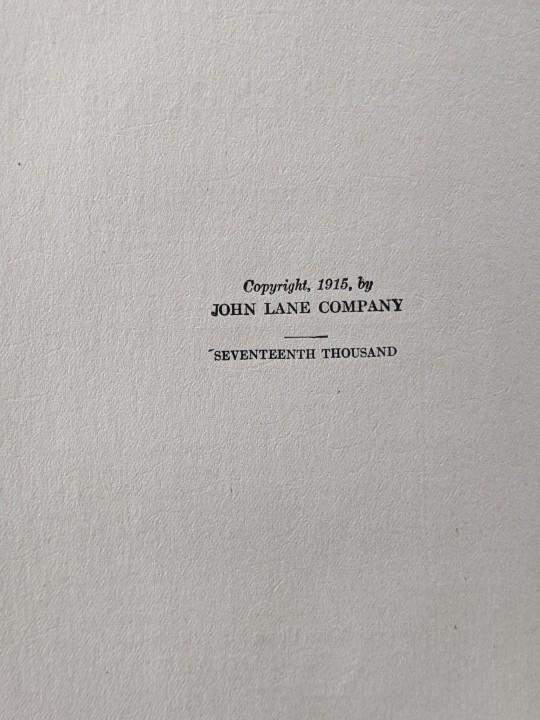
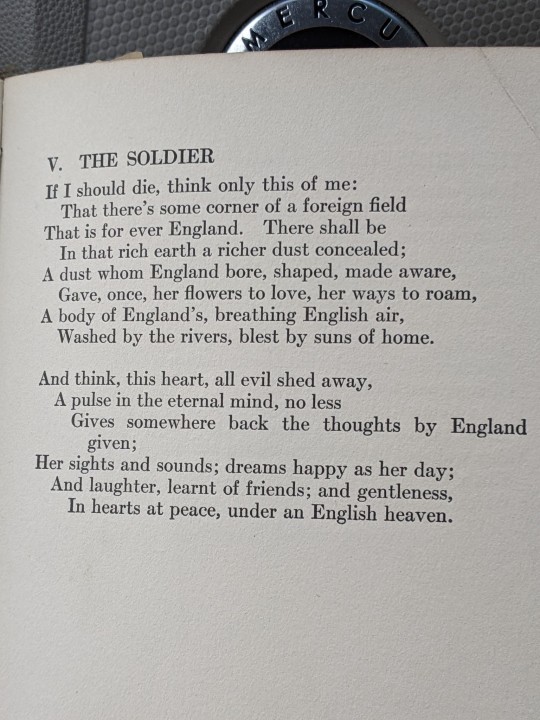
FOUND THIS IN A RANDOM USED BOOKSTORE I STOPPED IN ON A WHIM IT IS AN ORIGINAL 1915 EDITION PUBLISHED JUST AFTER HE WAS KIA DURING WWI I AM SILENTLY SCREAMING
#bookworm#kauri's poetry corner#war poetry#wwi#world war i#world war 1#the great war#rupert brooke#poetry#AAAAAAAAHHHHHHHHHHHHHHHH
95 notes
·
View notes
Text
empty temples empty mosques
empty halls of schools
desperation in air
death in every layer
killing innocence
killing faith
hollow eyed mothers
hold dead children
no screams
no wakes
they watch
mute bystanders
hands crossed behind them
pity in their eyes
no personal stakes
it will all burn to the ground
no saviours no survivors
no salvation just flames
•••••
There are perhaps many causes worth dying for, but to me, certainly, there are none worth killing for.
- Albert Dietrich : The World War II Letters of Frank Dietrich and Albert Dietrich
#war poetry#quotes#writing#dark academia#inspiration#poetry#spilled writing#dark academic aesthetic#dark acadamia quotes#poetic#writers#war#spilled poetry#spilled ink#original poem#poets on tumblr#writers and poets#writeblr#writers on tumblr#poetsandwriters#poetscommunity#poets corner#women writers#palestine#ukraine
29 notes
·
View notes
Text
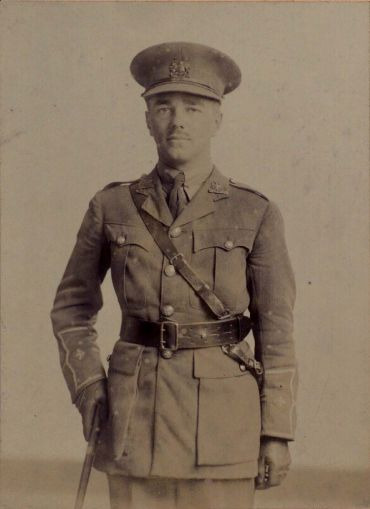
War's a joke for me and you,
While we know such dreams are true.
Siegfried Sassoon
~~~~~~
Out there, we've walked quite friendly up to Death, —
Sat down and eaten with him, cool and bland, —
Pardoned his spilling mess-tins in our hand.
We've sniffed the green thick odour of his breath, —
Our eyes wept, but our courage didn't writhe.
He's spat at us with bullets and he's coughed
Shrapnel. We chorussed when he sang aloft,
We whistled while he shaved us with his scythe.
Oh, Death was never enemy of ours!
We laughed at him, we leagued with him, old chum.
No soldier's paid to kick against His powers.
We laughed, — knowing that better men would come,
And greater wars: when each proud fighter brags
He wars on Death, for lives; not men, for flags.
— The Next War, Wilfred Owen (September 1917)
Happy birthday Wilfred Owen <3
9 notes
·
View notes
Text
To His Love
He's gone, and all our plans
Are useless indeed.
We'll walk no more on Cotswold
Where the sheep feed
Quietly and take no heed.
His body that was so quick
Is not as you
Knew it, on Severn river
Under the blue
Driving our small boat through.
You would not know him now…
But still he died
Nobly, so cover him over
With violets of pride
Purple from Severn side.
Cover him, cover him soon!
And with thick-set
Masses of memoried flowers—
Hide that red wet
Thing I must somehow forget.
— Ivor Gurney, 1917.
#ivor gurney#poetry#poem#war poetry#literature#gay literature#lgbt literature#gay#mlm#lgbt#world war i#world war 1#wwi#ww1#1910s
9 notes
·
View notes
Text
How does it feel, to have bone crunch between your teeth?
How does it feel, to hold the knife that sinks into soft flesh?
How does it feel, to have hot, boiling red blood on your hands, dripping off the tips of your fingers?
Take that hide and stretch it over the war drum, call it a herald of a new age and of a new world.
Take that hide from a child's back, from a mother's womb, from a father's chest, and stretch it over a wardrum. Call it a herald of a new time and a new hierarchy.
Take that hide from the bodies of the infants, who lie on the side of destroyed roads. Infants, bloody and beaten to death for crimes neither they nor their parents committed.
Bang the wardrum to cover the sound of the screams and call it music.
Bang the wardrum to cover the sound of exploding bombs and call it music.
Bang the wardrum, bang the wardrum, war is here in the guise of festivity.
A festivity, not of food and music and dance, but of blood and gore and the search for false glory.
You hold the knife, you hold the gun, you hold the drum beater.
You bring war in the guise of festivity.
You bring war without admitting that it is one, while mothers, fathers, children, soldiers lie on destroyed grounds with blank eyes and bloody temples.
You bang the wardrum, bang the wardrum, bang the wardrum.
War is here.
7 notes
·
View notes
Text
Siegfried Sassoon’s Aftermath, read by Jeremy Irons, for the 1996 BBC-Imperial War Museum documentary, The Great War and the Shaping of the 20th Century.
Jay Winter, a Yale history professor and Great War historian, was a contributor to the documentary series, and later to BBC radio programmes and podcasts for the centenary. He said this in BBC Radio Three's Dawn on the Somme;
"...The legacy of the First World War is unquestionably that of a war escaping from human control...Once the leaders, military and political, took the decision not to stop the war, they unleashed forces that they were unable to control. The reason why the Somme symbolises the war as whole, is that the armies were organised on the assumption that victory would come through breakthrough…the war showed the futility of the ideas of the 19th century when 20th century weaponry and manpower were applied to them..."
#social history#armistice day#remembrance day#lest we forget#the great war#world war one#first world war#military history#war poetry#siegfried sasson
13 notes
·
View notes
Text
At the trial of God, we will ask: why did you allow all this?
And the answer will be an echo: why did you allow all this?
Ilya Kaminsky, Deaf Republic
#Ilya Kaminsky#Deaf Republic#quotes#quote#poetry#poetry quote#poetry quotes#poetry excerpt#poem quote#poem quotes#poem excerpt#war#war poetry
146 notes
·
View notes
Text
"What passing-bells for these who die as cattle? / — Only the monstrous anger of the guns. / Only the stuttering rifles' rapid rattle / Can patter out their hasty orisons."
Read it here | Reblog for a larger sample size!
#closed polls#polls#poetry#poems#poetry polls#poets and writing#tumblr poetry#have you read this#anthem for doomed youth#wilfred owen#war poetry
18 notes
·
View notes
Text
I have only the shadows under the leaves
to take with me, the quiet of the desert,
the low fog of Balad, orange groves
with ice forming on the rinds of fruit.
Brian Turner, from Night in blue
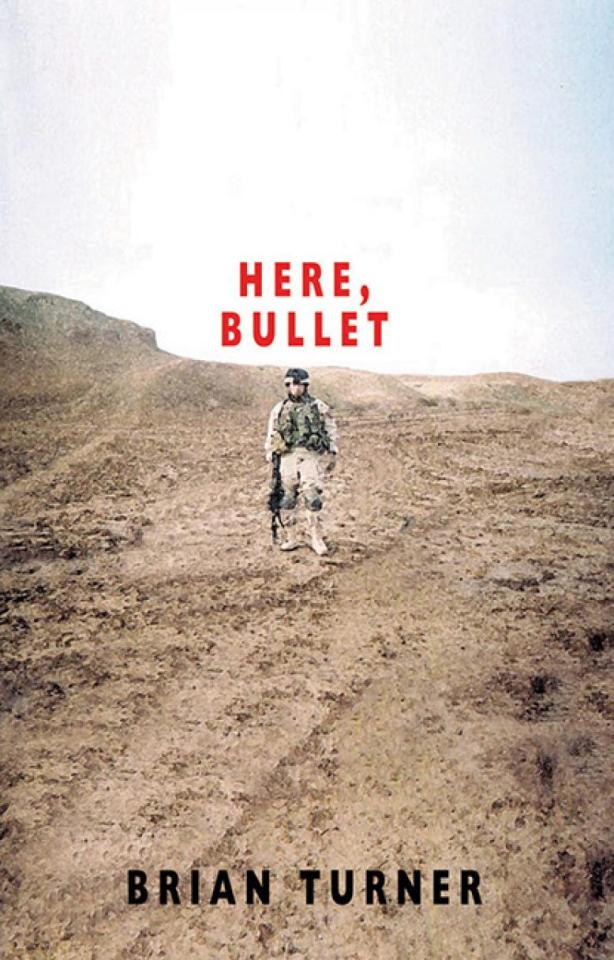
8 notes
·
View notes